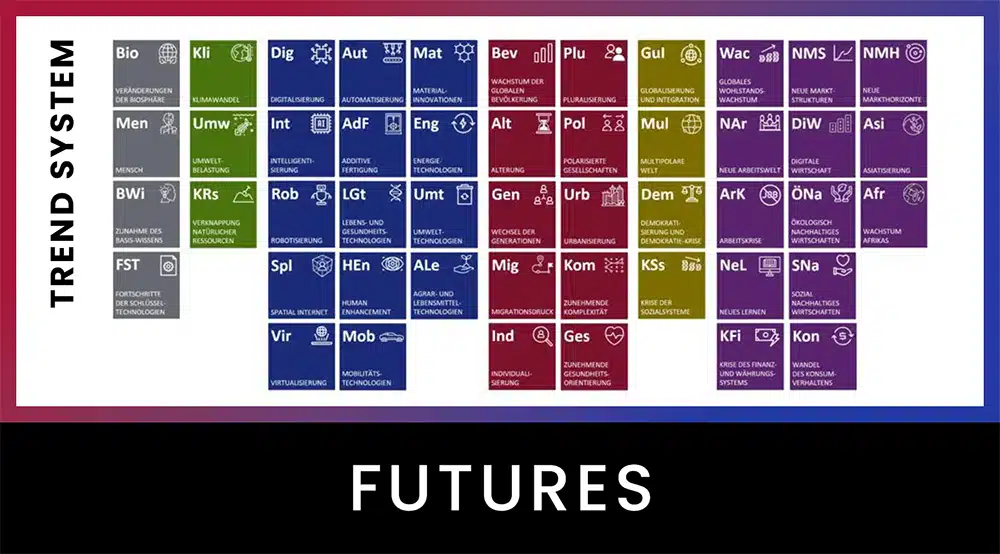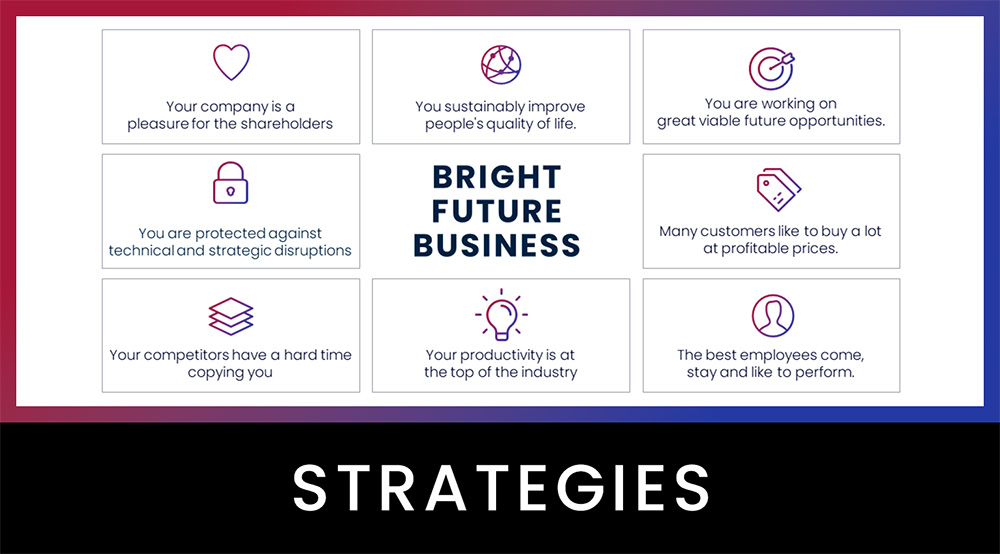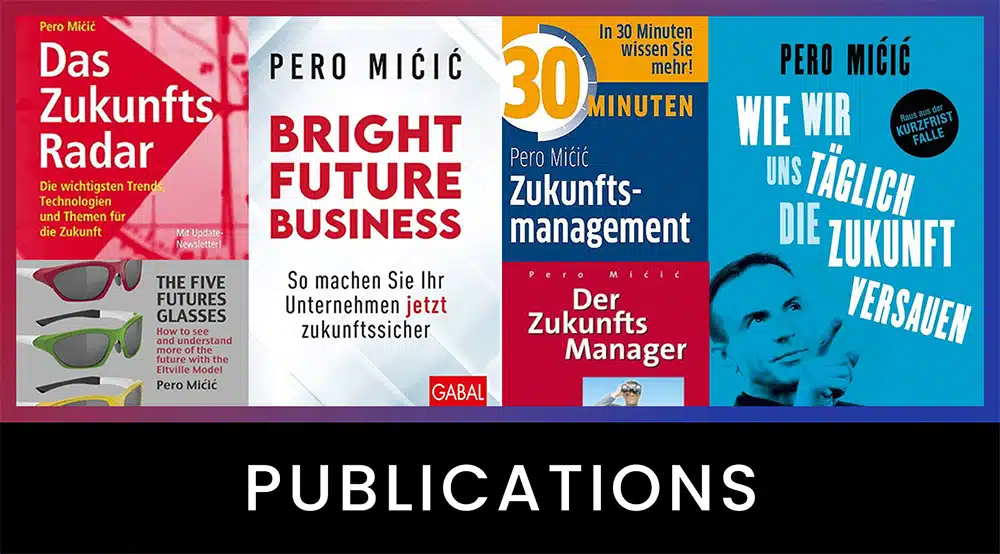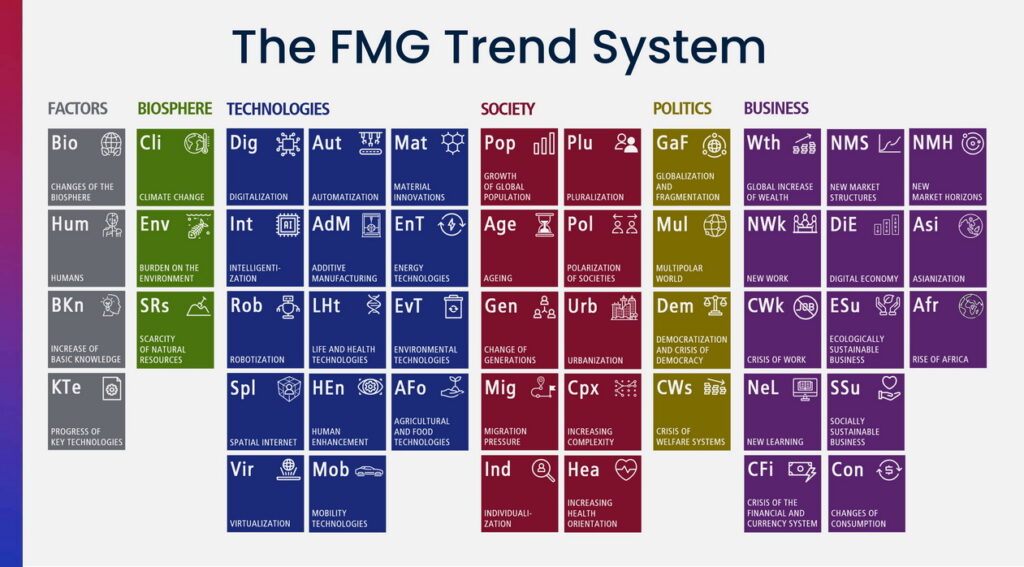Nobody wants electric cars anymore. You read that everywhere. It is true that sales in Germany have fallen after the purchase subsidies were rightly abolished. But not to zero. The share of the growing overall market fell by a third from 18.3% to 11.7% (-14% in absolute terms). After two years, the gap will be closed, as it was in Norway.
But global sales of battery-only vehicles also rose by around 25% in the first quarter of 2024!
The traditional manufacturers’ retreat to plug-in hybrids is an incredibly short-sighted strategic mistake that threatens their existence in the long term. Because plug-in hybrids are not the solution for several reasons and because it leads to “descalation”, so that the costs per electric vehicle are increasingly rising. The battery capacities go to the specialists and become even cheaper for them.
It could also be a strategy out of desperation, because nobody is making money with electric cars. Except Tesla and (maybe) BYD. Ford loses an incredible USD 132,000 per electric car sold in the first quarter of 2024! More on this elsewhere.
Below we show three plausible scenarios. They are in line with what we have been communicating to our clients since at least 2016. In most cases, the worst could be prevented. Unfortunately, however, immense damage to our traditional manufacturers and their suppliers will be almost impossible to prevent.
The first scenario assumes constant sales. The second assumes rising sales as the population and prosperity increase. The third scenario assumes falling sales, which can be expected from the advent of autonomous vehicles.
In all three scenarios, the automotive industry faces three to four tough years ahead. After the transformation, it will sell virtually no more combustion engines sooner than is usually expected. Not even plug-in hybrids. For purely economic reasons alone, customers will opt for BEVs. Bans and green thoughts are not necessary for this.
Under the scenarios you will find the summary and the sequence of events.
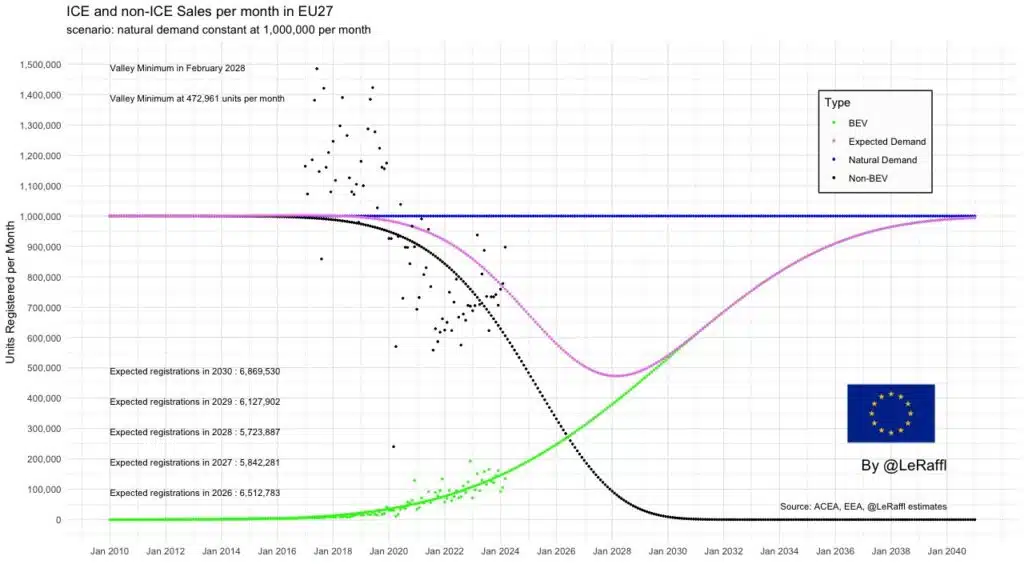
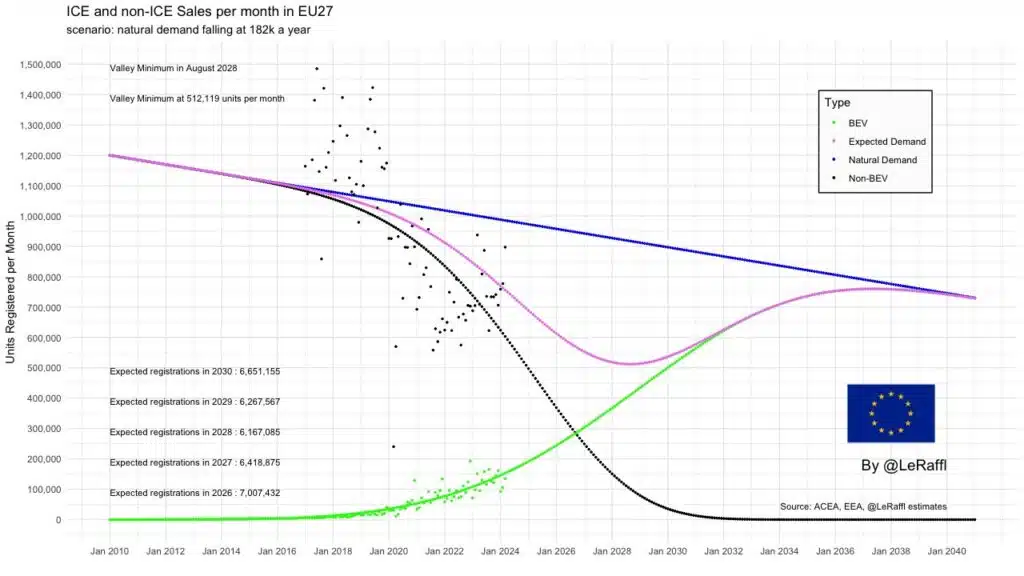
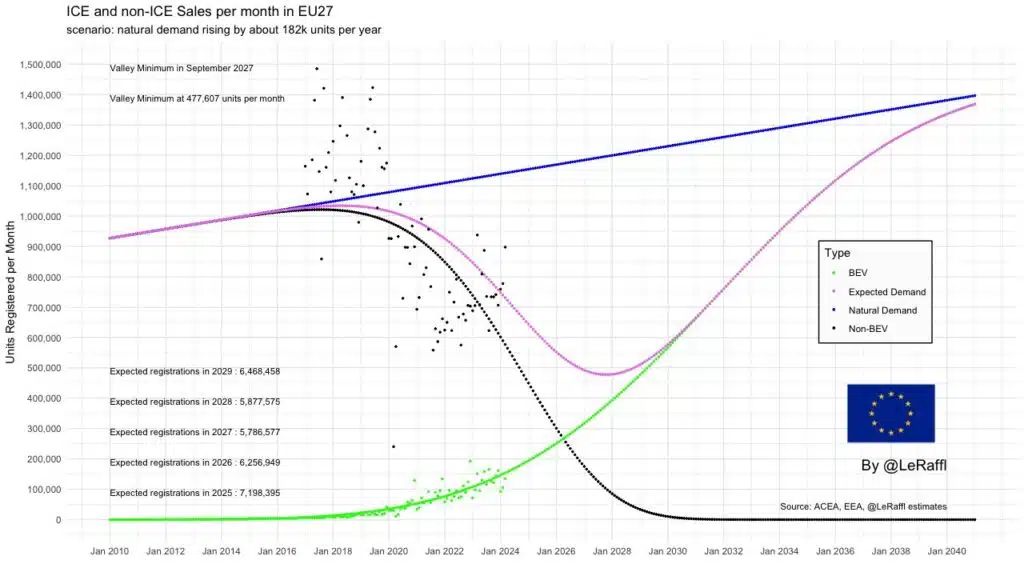
Summary of the process:
- Customers are unsure what they should buy or lease. A fossil fuel car or an electric car. They fear that – depending on the scenario – both fossil fuel cars and electric cars could quickly lose value.
- Buyers are unsettled by misinformation about the functionality and reliability of BEVs.
- Many wait and buy/lease nothing for a while. The car market takes a serious hit (until ~2027/2028).
- The production facilities for fossil fuel vehicles are being “shut down”: lower sales mean higher costs and even higher prices. This leads to lower demand and lower sales. Also for used vehicles. A vicious circle downwards.
- The learning effects of BEVs are leading to a further increase in range, performance and quality and to a fall in purchase prices. As a result, they are gradually becoming the obvious choice for rational customers.
- This is likely to be the biggest disruption in economic history.
This is the price the traditional car industry is paying for short-sighted strategies. Some will pay the ultimate price.
Graphics: @LeRaffl on X





















